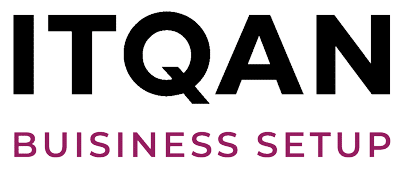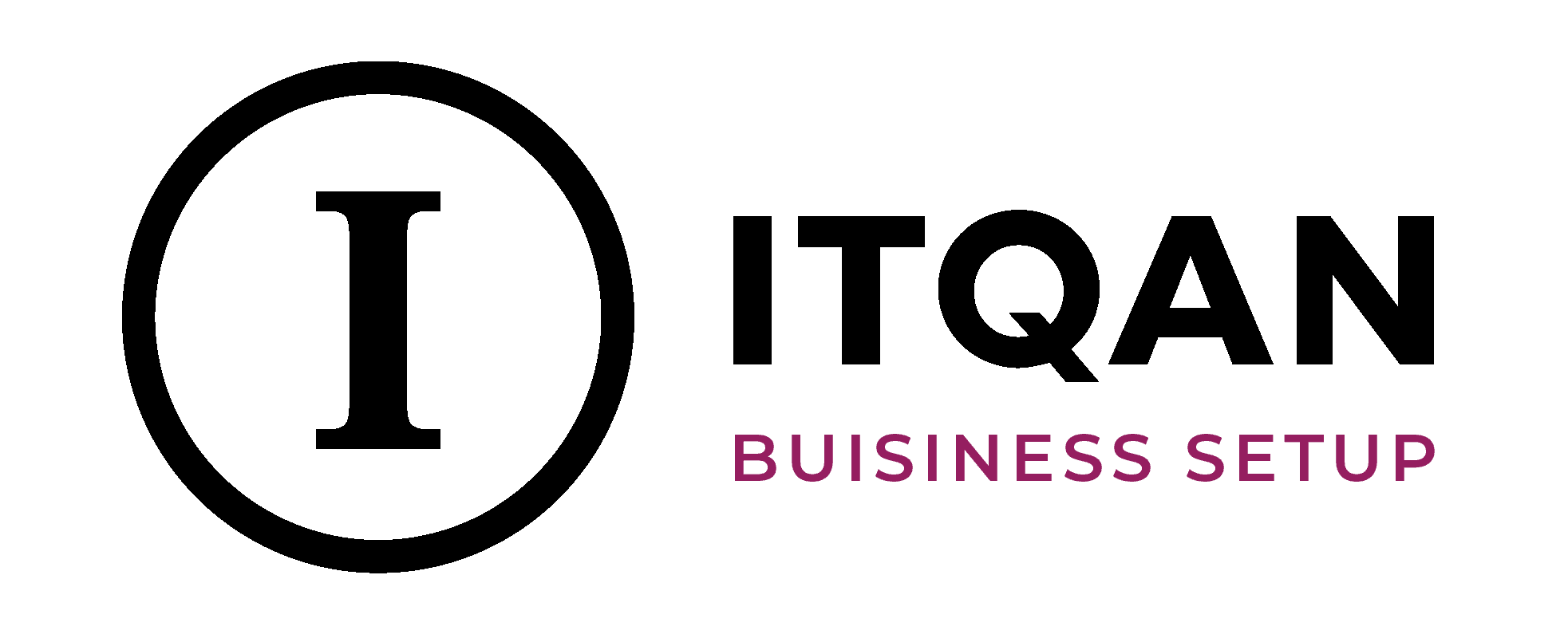Dubai, the gem of the Unified Middle Easterner Emirates, has procured a worldwide standing as a flourishing business center, captivating business visionaries and organizations from all edges of the world. With its essential area, cutting edge framework, and business-accommodating strategies, it’s no big surprise that Dubai has turned into a magnet for organizations looking to lay out a presence in the Center East.
In any case, prior to plunging carelessly into the clamoring markets of Dubai, it’s fundamental for both trying and prepared entrepreneurs to familiarize themselves with the duty scene in this unique city. Understanding the complexities of business tax collection in Dubai isn’t just urgent for consistency yet additionally for going with informed monetary choices that can essentially affect your organization’s primary concern.
In this far reaching guide, we will demystify the universe of business charges in Dubai. We’ll investigate the different sorts of business substances you can lay out, dive into the particulars of corporate personal assessment, shed light on Worth Added Expense (Tank) guidelines, and give bits of knowledge into different charges and charges that might influence your business activities. Whether you’re a startup, a global company, or basically somebody inquisitive about carrying on with work in Dubai, this guide is intended to be your go-to asset for exploring the duty climate.
Therefore, let’s set out on a journey through Dubai’s tax complexities. Along the way, we’ll decipher the complexities of business taxation and provide you with the knowledge you need to succeed in this dynamic economic environment.
Types of Business Entities in Dubai
Dubai offers a scope of choices for organizing your business, each with its own arrangement of benefits and duty suggestions. Prior to digging into the particulars of business charges in Dubai, it’s critical to comprehend the different business substances you can lay out. Your decision of business design will fundamentally influence your assessment commitments and functional adaptability. Here are the essential sorts of business substances in Dubai:
Central area Organizations
Central area organizations, otherwise called inland organizations, are organizations enrolled and authorized to work inside the more extensive area of Dubai, instead of free zones or seaward locales. They are dependent upon the locale of the Dubai Division of Financial Turn of events (DED). Important information regarding mainland businesses includes:
Ownership: According to UAE law, mainland businesses typically require a local Emirati sponsor or partner with a minimum ownership stake. The possession dissemination is characterized in the Reminder of Affiliation (MOA).
Activities in Business: Central area organizations appreciate more prominent adaptability in picking business exercises and can participate in a great many business and expert exercises.
Taxation: While Dubai is known for its business-accommodating expense climate, central area organizations are dependent upon corporate personal duty, normally alluded to as “benefit charge.” In any case, it’s vital to take note of that the duty rates for central area organizations have customarily been low, and there have been charge exceptions set up for specific sorts of pay.
Free Zones
Dubai has various free zones, each taking care of explicit enterprises and business exercises. The purpose of these zones is to provide businesses with a variety of incentives and to encourage foreign investment. Key highlights of free zones include:
Ownership: Full foreign ownership is allowed in free zones, so you don’t need a local sponsor or partner to start and run a business there.
Taxation: Most free zones in Dubai offer organizations a tax-exempt climate. This implies no corporate personal duty for a predetermined number of years, frequently reaching out for quite some time. Also, there is generally no tradition obligation on merchandise brought into free zones.
Business Exercises: The kinds of activities that can be carried out within each free zone may be restricted or limited. It’s vital to pick a free zone that lines up with your business needs.
Seaward Organizations
Dubai likewise offers seaward organization choices for organizations hoping to globally work. Seaward organizations in Dubai are normally utilized for holding resources, overseeing speculations, and leading worldwide exchange. Key attributes of seaward organizations include:
Ownership: Seaward organizations can have 100 percent unfamiliar proprietorship, and there is no prerequisite for a neighborhood accomplice or support.
Taxation: In most cases, offshore businesses in Dubai are exempt from local taxes like VAT and corporate income tax. They are fundamentally dependent upon a proper yearly charge for enlistment and recharging.
Business Exercises: Seaward organizations are frequently not allowed to take part in business exercises inside the UAE. Their basic role is to go through with worldwide deals and resource the board outside the country.
Your decision of the business element in Dubai ought to line up with your business objectives, the idea of your exercises, and your drawn out technique. It’s fitting to talk with legitimate and monetary specialists who have practical experience in Dubai’s business guidelines to pursue an educated choice.
Corporate Income Tax in Dubai
Dubai’s standing as an expense accommodating purview frequently rotates around its ideal duty strategies, including its way to deal with corporate personal assessment. Understanding the complexities of corporate personal assessment in Dubai is fundamental for organizations working in this emirate. In this part, we will dive into the points of interest of corporate personal duty and its suggestions for organizations in Dubai.
An Overview of Corporate Income Tax
Dubai’s “Zero Tax” policy on corporate income for the majority of entities is one of the main reasons to do business there. This implies that most organizations in Dubai are not exposed to customary corporate annual duties, permitting them to hold a greater amount of their benefits. Be that as it may, there are exemptions for this standard, which we will investigate not long from now. Dubai’s obligation to zero corporate personal expenses is intended to invigorate monetary development, draw in unfamiliar speculations, and cultivate a business-accommodating climate. This expense strategy has been instrumental in making Dubai a worldwide business center point.
The Idea of “Zero Assessment” and Its Suggestions
The idea of zero corporate annual expense in Dubai has a few ramifications for organizations:
Charge Proficiency: Dubai’s zero-charge strategy makes it an alluring objective for organizations hoping to enhance their assessment risk. Benefits produced by organizations are not dissolved by high corporate expense rates, which can be a critical benefit, especially for worldwide organizations. Upper hand: Dubai’s expense effective climate gives organizations an upper hand in the worldwide market. Lower taxation rates can prompt higher benefit, lower costs for buyers, and expanded intensity on a worldwide scale.
Abundance Maintenance: Entrepreneurs can hold a bigger piece of their income, which can be reinvested into the organization’s development or utilized for other growing strong financial foundation techniques.
Special cases for the Zero-Assessment Rule
While most organizations in Dubai benefit from the zero corporate annual assessment strategy, there are special cases. A few organizations and exercises are dependent upon corporate personal duty at different rates. The following are typical exceptions:
Parts of Unfamiliar Organizations: Parts of unfamiliar organizations working in Dubai might be dependent upon corporate annual duty on their UAE-obtained pay.
Oil and gas firms: Organizations participated in the investigation and creation of oil and gas might be dependent upon a particular expense system.
Banks and Monetary Establishments: Monetary foundations, including banks, are dependent upon a different duty system.
Insurance Agency: Insurance agencies are likewise dependent upon explicit tax assessment rules.
Organizations actually must decide if they fall under any of these exemptions and comprehend the appropriate expense rates and guidelines. Moreover, it’s fitting to look for the direction of expense experts or advisors with aptitude in Dubai’s assessment regulations to guarantee consistency and limit charge risk.
Value Added Tax (VAT) in Dubai
As of late, Dubai and the UAE overall have executed a Worth Added Duty (Tank) framework, denoting a huge change in the expense scene. Tank is a utilization charge that influences the two organizations and purchasers. In this part, we’ll investigate the presentation of Tank in Dubai, its suggestions for organizations, and what you want to be aware of to remain agreeable.
A Brief Overview of Dubai’s Value Added Tax (VAT)
The value added tax is a tax on goods and services throughout their supply chains. It is regularly borne toward the end buyer. The United Arab Emirates implemented VAT on January 1, 2018, with a standard rate of 5%. This is the very thing that you want to be familiar with Tank in Dubai:
Applicability: Tank applies to most labor and products in Dubai, for certain special cases and zero-evaluated classifications. Organizations are for the most part expected to charge Tank on their deals and report it to the duty specialists.
Registration: Organizations meeting explicit turnover limits are expected to enlist for Tank. Enlistment empowers organizations to gather and transmit Tank on their deals, while likewise permitting them to guarantee input Tank (Tank paid on costs) as a credit.
Rates of VAT: The standard Tank rate in Dubai is 5%. Be that as it may, certain labor and products might be dependent upon a 0% rate or be excluded from Tank by and large.
Tank Rates and Exceptions
Understanding the different Tank rates and exceptions is critical for organizations in Dubai:
Standard Rate (5%): Most labor and products in Dubai are dependent upon the standard Tank pace of 5%. This incorporates regular things like hardware, clothing, and most administrations.
Zero-Evaluated (0%): A few labor and products are dependent upon a 0% Tank rate. Businesses can thus charge VAT at zero percent on these transactions. While the merchant gathers Tank at 0%, they can in any case recuperate any Tank paid on their costs.
Exempt: VAT is not required on some kinds of goods and services. Organizations giving absolved labor and products don’t charge Tank to their clients, yet they additionally can’t recuperate Tank paid on their bits of feedback.
Tank Enlistment and Consistence Prerequisites
To guarantee consistence with Tank guidelines in Dubai, organizations must:
Sign up for VAT: Organizations with yearly turnover over a specific limit should enlist for Tank. Enrollment includes getting a Tank enlistment number and sticking to Tank consistency techniques.
Charge Tank: Businesses that are registered are required to issue VAT-compliant invoices and charge VAT on their taxable supplies.
Record Tank Returns: Organizations should document occasional Tank returns, ordinarily on a quarterly premise, and dispatch the Tank gathered to the expense specialists.
Keep up with Records: Keeping exact records of all exchanges, including solicitations and receipts, is fundamental for Tank consistency.
Consistence Reviews: Be ready for potential Tank reviews by the assessment specialists to guarantee that your business is in consistency with Tank guidelines.
Understanding the complexities of Tank is critical for organizations working in Dubai. Resistance can prompt punishments and fines, so it’s prudent to work with charge experts or advisors who have practical experience in Tank to actually explore the framework.
Customs Duties and Import/Export Taxes in Dubai
Dubai’s essential area as a significant worldwide exchange center point has prompted an intricate arrangement of customs obligations and import/trade charges. Understanding these obligations and expenses is critical for organizations participated in global exchange or bringing products into Dubai. In this segment, we’ll investigate the vital parts of customs obligations and import/trade charges in Dubai.
Outline of Customs Obligations in Dubai
Dubai forces customs obligations on imported products, and these obligations can shift contingent upon the sort of merchandise, their starting point, and their worth. The Unified Bedouin Emirates (UAE) is important for the Bay Collaboration Chamber (GCC), which has a bound together traditions tax, making customs obligations steady across part nations, including Dubai. Central issues to note about customs obligations in Dubai include:
Customs Statements: Merchants should proclaim products to customs specialists while bringing them into Dubai. This announcement incorporates insights concerning the merchandise, their starting point, and their worth.
Obligation Rates: Customs obligation rates change contingent upon the idea of the products. A few products might have higher obligation rates than others, and certain classifications of merchandise might be excluded from obligations.
International alliances: Dubai has gone into international alliances with a few nations, decreasing or killing traditions obligations on unambiguous products beginning from those nations. Organizations ought to know about these arrangements while bringing in products.
Import and Commodity Duties and Their Effect on Organizations
Import Expenses: At the point when organizations import products into Dubai, they might be dependent upon customs obligations, as referenced prior. Furthermore, Worth Added Duty (Tank) at the standard pace of 5% is pertinent to the importation of most labor and products, and it is regularly borne by the merchant.
Trade Duties: Dubai doesn’t force send out charges on merchandise leaving the country. This approach urges organizations to participate in worldwide exchange and commodity their items to worldwide business sectors without charge prevention.
Free Zones: Organizations situated inside free zones in Dubai might profit from exceptions or decreased traditions obligations on merchandise brought into the zone. Nonetheless, merchandise leaving the free zone for the homegrown UAE market might be dependent upon customs obligations and Tank.
Customs Documentation: Legitimate documentation and consistency with customs guidelines are fundamental while bringing in or sending out merchandise. This incorporates giving exact data about the merchandise, their worth, and their starting point.
Customs Merchants: Numerous organizations decide to work with customs merchants or clearing specialists who have practical experience in exploring the traditions freedom process, guaranteeing consistency, and limiting postponements.
Organizations participating in global exchange ought to be knowledgeable in customs guidelines and tax assessment. Remaining consistent with customs obligations and charges isn’t just a lawful prerequisite yet in addition fundamental for overseeing functional expenses and guaranteeing the smooth progression of products across borders.
Withholding Tax in Dubai
Keeping charge is a significant part of the duty framework in Dubai, affecting organizations associated with different monetary exchanges. Understanding saved portion charge and its suggestions is critical for both neighborhood and worldwide organizations working in Dubai. In this part, we will investigate what keeping charge is, its pertinence, rates, and consistency necessities.
Clarification of Keeping Assessment in Dubai
Keeping charge is a duty demanded at the kind of revenue, where the payer of pay is expected to keep a piece of the installment and transmit it straightforwardly to the expense specialists. In Dubai, keeping charge applies to explicit kinds of installments and is intended to guarantee that duty is gathered on pay produced inside the emirate. Central issues to comprehend about keeping charge in Dubai include:
Applicability: Keeping charge is regularly appropriate to installments like profits, interest, sovereignties, and expenses for specialized or the board administrations. The payer, also known as the withholding agent, bears the obligation to withhold tax.
Rates: The portion charge rates can change contingent upon the sort of installment and the beneficiary’s assessment residency status. For instance, the saved portion charge rate on profits paid to non-occupant investors is by and large 5%, yet this rate might be diminished or wiped out by charge arrangements.
Charge Deals: Dubai has gone into twofold tax assessment aversion arrangements (DTAs) with a few nations to forestall twofold tax collection on specific kinds of pay. These DTAs might affect the portion charge rates pertinent to cross-line installments.
Sorts of Pay Subject to Keeping Expense
Profits: Keeping charge is relevant to profits paid to non-occupant investors. The rate can shift contingent upon the arrangements of assessment settlements.
Interest: Interest installments to non-inhabitants are likely to keep charge. Once more, the rate might be impacted by charge settlements.
Royalties: Installments for the utilization of licensed innovation, like licenses, copyrights, and brand names, might be likely to keep charge.
Fees for Management or Technical Services: Installments for specialized or the board administrations given by non-occupant substances may likewise be liable to keeping charge.
Rates and Exemptions for Withholding Taxes
It’s critical to keep in mind that withholding tax rates and exemptions can be complicated and subject to change. As a result, businesses that conduct international business transactions ought to:
Decide Materialness: Comprehend whether keeping charge applies to explicit exchanges.
Survey Rates: Decide the relevant portion charge rates and any expected decreases or exclusions given by charge arrangements.
Compliance: Guarantee legitimate saved portion and settlement to the expense specialists, as rebelliousness can bring about punishments and lawful issues.
Look for Proficient Exhortation: Given the complexities of keeping charge, it’s fitting to look for proficient assessment exhortation and draw in with specialists who can aid consistency and duty streamlining.
Other Business-Related Taxes and Fees in Dubai
While corporate annual assessment, Tank, and keeping charge are a portion of the key duties that organizations in Dubai need to comprehend, there are different expenses and charges that might apply, contingent upon your business exercises and area. In this segment, we’ll investigate a portion of these extra expenses and charges that organizations in Dubai might experience.
Region Expenses
Dubai forces region expenses, otherwise called “civil duties,” on specific business exercises and properties inside the emirate. These charges are ordinarily gathered by the nearby district and are utilized for framework improvement and public administrations. Important information regarding municipal fees includes:
Activities in Business: Particular sorts of organizations, like lodgings, eateries, and diversion settings, might be dependent upon district charges in view of their income or explicit standards.
Taxes on homes: Land owners in Dubai might be expected to pay local charges to the neighborhood region, which can shift contingent upon the property’s sort and utilization.
Compliance: Businesses and property owners must be aware of the municipality’s fees for their activities and ensure that they comply with payment requirements.
Local charges
Dubai has a local charge known as “District Duty” or “Lodging Expense.” This tax may be due by property owners, whether individuals or businesses, based on the annual rental value of their properties. Central issues about local charges in Dubai include:
Available Properties: Private and business properties, including lofts, estates, and workplaces, are dependent upon region charges.
Rate Estimation: The typical property tax rate is a percentage of the property’s annual rental value. The particular rate can shift in view of the property’s area and type.
Tax Obligation: Land owners are answerable for making good on local charges, and these expenses are commonly paid yearly to the Dubai Land Division.
Extract Expenses
Extract charges are applied to explicit merchandise viewed as destructive or unnecessary, like tobacco items, sweet refreshments, and certain extravagance things. In Dubai, extract charges are intended to advance better decisions and create income for public administrations. Central issues about extract charges include:
Prohibited Goods: Extract charges in Dubai principally apply to tobacco items, caffeinated drinks, carbonated drinks, and electronic smoking gadgets.
Rates: The expense rates for extract assessments can differ contingent upon the kind of item. These rates are normally determined as a level of the item’s retail cost.
Compliance: Organizations engaged with the creation, import, circulation, or offer of excisable products should guarantee consistency with extract charge guidelines, including legitimate naming and expense installment.
The travel industry and Neighborliness Expenses
Organizations in the travel industry and cordiality area in Dubai might be dependent upon extra charges and duties to help the improvement of the travel industry. These expenses might incorporate the travel industry charges, the travel industry dirhams, and different charges. Central issues in regards to the travel industry and neighborliness charges include:
Applicability: Lodgings, eateries, visit administrators, and different organizations in the travel industry area might be expected to gather and transmit these charges to the pertinent specialists.
Rate Estimation: The kind of business and where it is located can affect how much the tourism and hospitality fees cost.
Income Age: Most of the time, the money from these fees is put back into tourism infrastructure and marketing efforts to make Dubai more popular as a tourist destination.
For financial planning and compliance purposes, it is essential to comprehend these additional taxes and fees that may apply to your company. Contingent upon your industry and exercises, you might have to figure these expenses while planning for your business activities in Dubai. For the most up-to-date information and advice on these taxes and fees, it’s best to talk to experts in taxation or government agencies.
Tax Planning and Compliance in Dubai
Exploring the expense scene in Dubai requires not just a comprehension of the different charges and charges yet in addition an essential way to deal with charge arranging and consistency. Viable assessment arranging can assist organizations improve their duty liabilities and guarantee full consistency with Dubai’s expense guidelines. In this part, we’ll investigate the significance of assessment arranging and key methodologies for organizations working in Dubai.
Significance of Duty Arranging
Charge arranging is a basic part of dealing with your business’ funds in Dubai. Legitimate expense arranging can offer a few advantages, including:
Charge Enhancement: You can reduce your tax burden and keep more of your earnings by effectively structuring your business and financial transactions.
Compliance: Remaining consistent with Dubai’s assessment regulations is fundamental to stay away from punishments and lawful issues. Charge arranging guarantees that your business complies with all pertinent duty guidelines.
Cost Control: You can effectively budget and incorporate taxes into your overall financial plan if
you are aware of your tax obligations.
Upper hand: Competitive pricing can be offered by tax-efficient businesses, potentially bringing in more investors and customers.
Techniques for Limiting Assessment Liabilities
To improve your business’ assessment position in Dubai, consider carrying out the accompanying methodologies:
Picking the Right Business Design: Choosing the most proper business substance (central area, free zone, or seaward) can essentially affect your assessment liabilities. Assess the upsides and downsides of each design in light of your business exercises and long haul objectives.
Utilizing Assessment Arrangements: Consider whether tax treaties between Dubai and other nations can assist in lowering withholding tax rates and avoiding double taxation if your company conducts international business.
Planning for VAT: For organizations subject to Tank, appropriate record-keeping and consistency are fundamental. Consider working with charge experts to guarantee precise Tank detailing and limit Tank costs.
Customs Obligation Arranging: While bringing in or sending out products, investigate chances to limit customs obligations, like utilizing free zones or making the most of international alliances.
Keeping Duty Advancement: Survey your monetary exchanges to recognize potential open doors for keeping charge streamlining, for example, organizing installments in a duty proficient way.
Land and Local charge Methodologies: In the event that you own property in Dubai, consider what local charge suggestions mean for your general assessment arranging. Investigate exclusions and allowances accessible for land owners.
Standard Assessment Audits: Occasionally audit your expense position and monetary exchanges to guarantee continuous duty productivity. Charge regulations and guidelines might change, so keeping awake to-date is vital.
Connect with Expense Experts: For efficient tax planning and compliance, working with tax advisors, consultants, or accountants who are familiar with Dubai’s tax laws can provide valuable insights and direction.
Consistence Necessities and Cutoff times
Sticking to burden consistency necessities is key for organizations in Dubai. Neglecting to fulfill consistency time constraints or precisely report assessments can bring about fines and punishments. Hence, it’s critical to:
Figure out Revealing Commitments: Be aware of the particular reporting requirements for each kind of tax that applies to your company, such as filing returns for VAT, income tax, and customs declarations.
Keep up with Precise Records: Keep fastidious records of every monetary exchange, solicitations, and receipts connected with your business exercises. Precise record-keeping is significant for charge reviews and consistency.
Send in Returns on Time: Guarantee that you record assessment forms and reports by the assigned cutoff times. Missing cutoff times can prompt punishments.
Look for Proficient Help: Consider hiring tax professionals who are knowledgeable about Dubai’s tax laws if you have complicated financial arrangements or are unsure about any aspect of tax compliance.
Recent Tax Changes and Updates in Dubai
The expense scene in Dubai, similar to some other ward, is liable to changes and updates. Remaining informed about ongoing assessment advancements is fundamental for organizations to adjust to developing guidelines and settle on informed monetary choices. We’ll look at some recent tax changes and updates that Dubai businesses should be aware of in this section.
Brief Synopsis of the Most Recent Changes to Tax Law
Dubai and the United Arab Emirates (UAE) have taken the initiative to update and refine their tax policies in order to bring them into line with international standards and foster economic expansion. Changes to the tax code in recent years include:
Presentation of Financial Substance Guidelines: The UAE has executed Financial Substance Guidelines, requiring organizations directing specific exercises to exhibit adequate monetary substance in the UAE. Consistence with these guidelines is vital to keep away from punishments.
Changes to VAT Rates: While the standard Tank rate in Dubai has stayed at 5%, there might have been changes to the rundown of zero-evaluated and excluded things. Remain refreshed on any progressions to Tank rates and guidelines that might affect your business.
Charge Deals: Dubai has kept on growing its organization of twofold tax assessment aversion arrangements (DTAs) with different nations. These DTAs might affect keeping charge rates on cross-line installments.
Customs and Exchange Strategies: Changes in customs obligations, import/send out guidelines, and exchange approaches can influence organizations that took part in global exchange. Watch out for refreshes there to guarantee consistency.
Charge Revealing and Consistency: The UAE government has been executing computerized frameworks for charge announcing and consistency. Organizations might have to adjust to these frameworks and guarantee they fulfill the expected announcing guidelines.
How Organizations Can Adjust
To adjust to ongoing duty changes and updates in Dubai, organizations can make the accompanying strides:
Remain Informed: Routinely screen government sites, official distributions, and declarations from significant specialists to keep up- to-date on charge changes and updates.
Audit Existing Designs: Assuming your business has a laid out structure, survey it to guarantee it remains charge productive and agreeable with new guidelines. If necessary, consider restructuring.
Survey Agreements and Arrangements: Audit existing agreements and arrangements to guarantee they mirror the most recent assessment regulations and guidelines. Update contracts depending on the situation to keep up with consistency.
Preparing and Training: Make an investment in education and training for your finance and tax teams to ensure that they comprehend and are able to successfully navigate the new tax requirements.
Connect with Expense Experts: In order to assist your business in adapting to changes and optimizing your tax strategy, consult with tax advisors, consultants, or experts who specialize in Dubai’s tax laws.
Customary Consistence Reviews: Conduct regular compliance audits to ensure that your company is accurately reporting and meeting all tax obligations.
Plan for Future Changes: Be aware that the tax landscape is always changing. Lay out processes inside your association to successfully adjust to future changes.
Conclusion
In this thorough aide, we’ve investigated the multifaceted universe of business charges in Dubai. Due to its strategic location, cutting-edge infrastructure, and business-friendly policies, Dubai has earned a reputation as a global business hub and is a popular destination for businesses and entrepreneurs alike.
To succeed in Dubai’s dynamic business environment, it is essential to stay up to date on tax regulations, interact with tax professionals, and take proactive steps to manage tax planning and compliance.
Dubai’s obligation to encourage a business-accommodating environment, combined with its consistently advancing administrative system, positions it as a top decision for organizations looking for development and open doors in the Center East and then some. Whether you’re a growing business visionary or a laid out partnership, Dubai’s dynamic and expense well disposed biological system offers a large number of benefits for your business.
As you set out on your business process in Dubai, recollect that nonstop learning and variation are critical to flourishing in this steadily evolving scene. Look for proficient exhortation, remain informed, and investigate the various assets accessible to capitalize on your business experience in Dubai.
FAQs
Is there corporate personal assessment in Dubai?
No, Dubai doesn’t force corporate personal expenses on most organizations. The emirate follows a “Zero Expense” strategy, and that implies that most organizations are not exposed to conventional corporate personal charges on their benefits. Be that as it may, there are special cases for particular kinds of pay and exercises.
What is the ongoing Tank rate in Dubai?
The standard Worth Added Assessment (Tank) rate in Dubai is 5%. This rate applies to most labor and products. In any case, there are things that might be dependent upon a 0% rate or are excluded from Tank.
Do I have to pay a maintenance charge in Dubai?
Keeping duty might apply to explicit sorts of installments made to non-occupant people or substances, like profits, interest, sovereignties, and expenses for specialized or the board administrations. The rates can shift, and it’s vital to survey the relevance of keeping charge in light of your exchanges and counsel charge specialists for consistency.
Are there customs obligations on imported products in Dubai?
Indeed, Dubai forces customs obligations on imported merchandise. The rate and appropriateness of customs obligations rely upon factors like the kind of merchandise, their starting point, and their worth. Organizations engaged with bringing in products ought to know about customs guidelines to decide the relevant obligations.
How might I limit my assessment liabilities in Dubai?
Choosing the right business structure (mainland, free zone, or offshore), leveraging tax treaties, proper VAT planning, optimizing customs duties, and ensuring compliance with tax regulations are all ways to minimize tax liabilities in Dubai. Drawing in charge experts with aptitude in Dubai’s expense regulations is prudent for customized charge improvement techniques.







